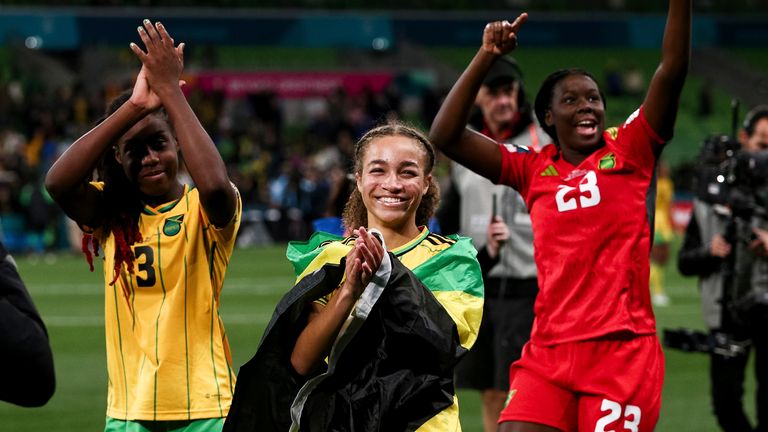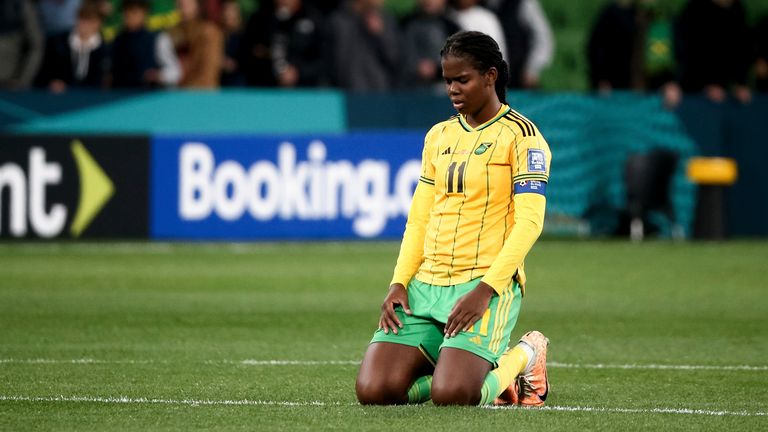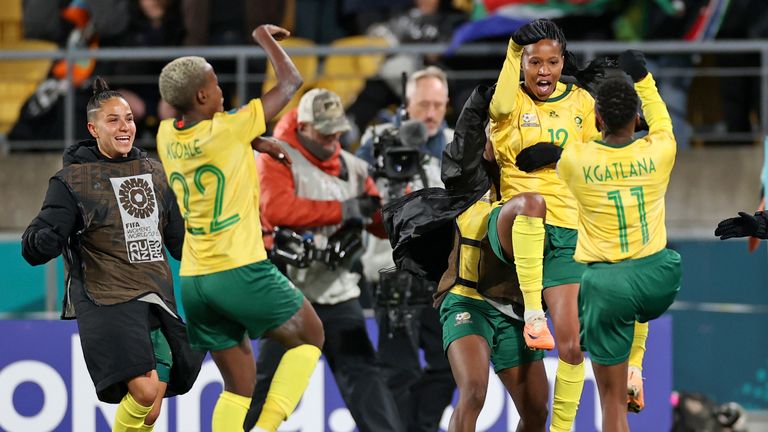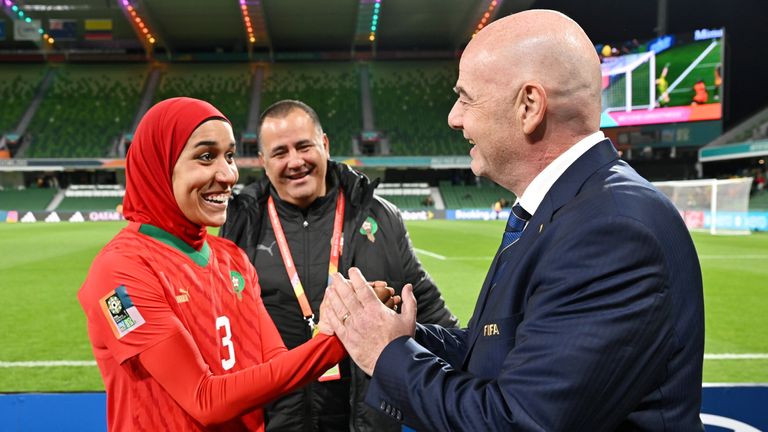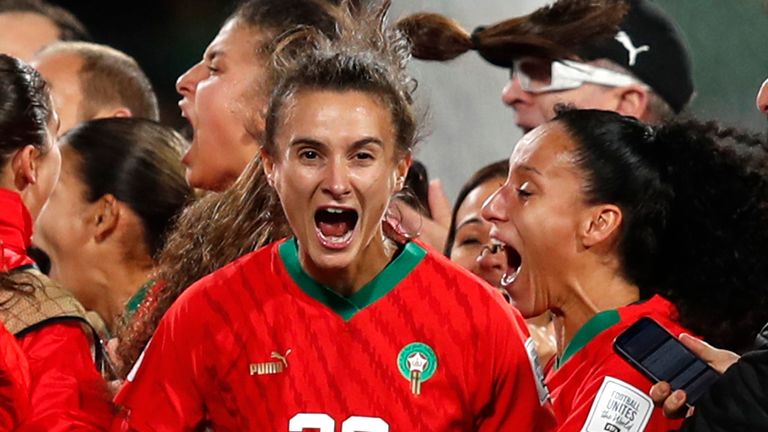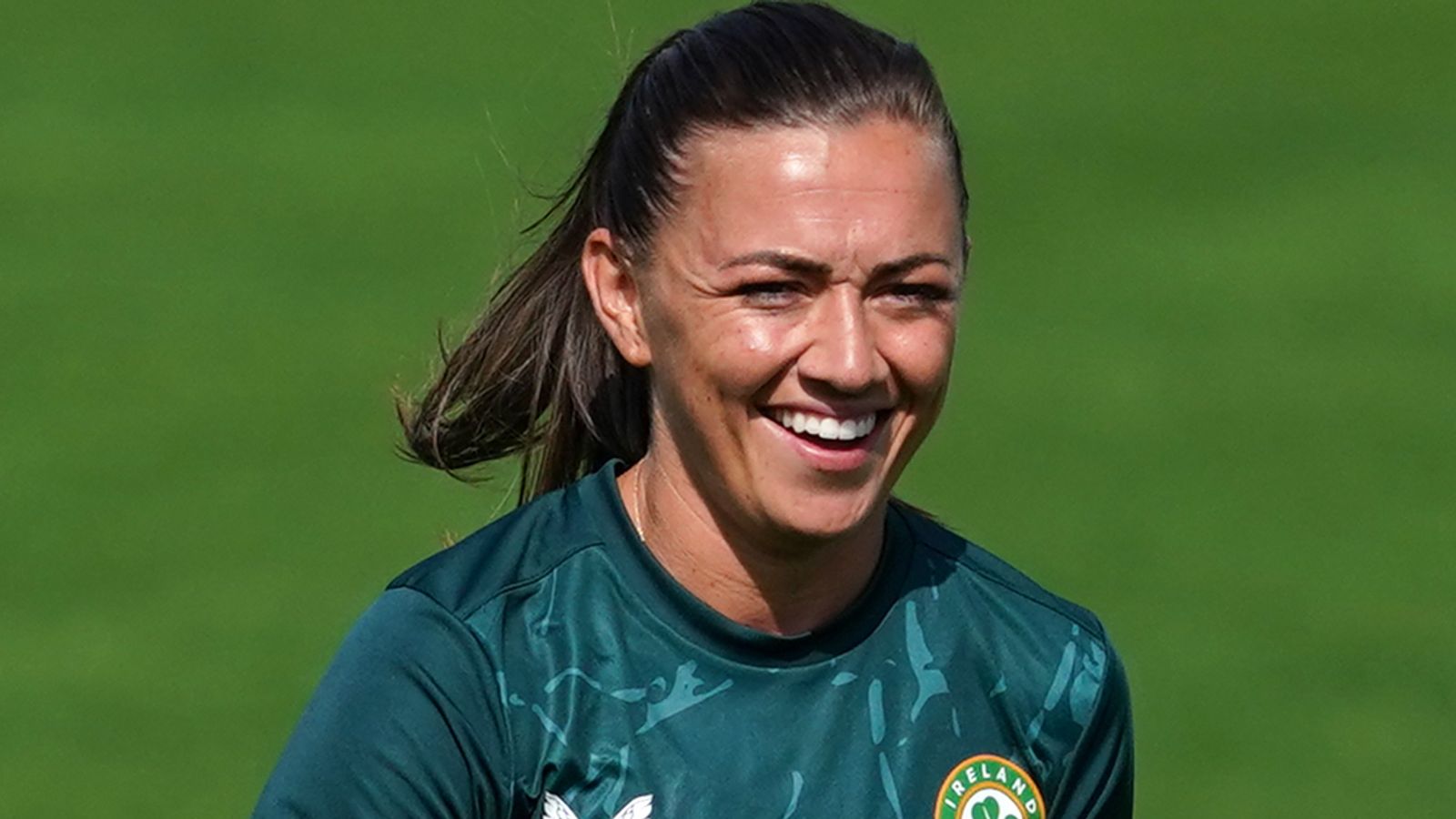
Unbelievable Journey: Jamaica, South Africa and Morocco Astound in Women's World Cup, Advancing to Last 16

Underdogs shine at Women's World Cup as Jamaica, South Africa, and Morocco defy expectations, defeating top-ranked teams Jamaica's historic journey, fueled by the memory of fallen player Jedine Carr, self-funded their campaign Banyana Banyana's unwavering belief and Atlas Lionesses' royal support also contributed Check out the Women's World Cup schedule
South Africa, Jamaica, and Morocco have all made history by securing a spot in the last 16 of the Women's World Cup for the first time. These underdog teams have successfully eliminated more established opponents, defying inequality, tragedy, and limited funding. Following the unexpected eliminations of Brazil, Italy, and Germany, it is South Africa, Jamaica, and Morocco, all of whom are ranked outside the top 50 teams globally, that have been capturing the spotlight.
South Africa exited the competition after a 2-0 defeat to the Netherlands in their last-16 match. However, on Tuesday, the spotlight shifts to Morocco and Jamaica as they strive to advance to the quarter-finals. Remarkably, it is not only their low rankings that make their potential success noteworthy, but also the remarkable journeys each team has undertaken in this tournament.
Image:
Jamaica will face Colombia on Tuesday, August 8 in the round of 16.
Reggae Girlz rise up
The funding for the Jamaica women's team has been halted on two occasions over the past 15 years. They had to rebuild from scratch in 2008 and then encountered a similar setback in 2016.With the aid of singer Cedella Marley, the daughter of Bob Marley, the team managed to secure funds in 2014 by releasing a single. Their tenacity, combined with this support, enabled them to qualify for the 2019 World Cup. However, their failure to secure any victories and consequent elimination during the group stage made it an even more formidable challenge to reach Australia and New Zealand.
The team faced the challenge of self-financing, prompting midfielder Havana Solaun's mother to launch a GoFundMe campaign titled 'Reggae Girlz Rise Up'. This initiative successfully raised $50,000 to offset the expenses associated with their participation. The support received from the Jamaican Football Federation was deemed "subpar" by the team.
Image:
Manchester City forward Khadija Shaw has been crucial to Jamaica's success
Struggles and tragedies away from the field have translated into resilience and commitment on it.
Jamaica managed to hold fifth-ranked France to a scoreless draw in their World Cup opener, followed by a 1-0 victory against Panama in Perth. Despite these impressive results, their chances of qualifying seemed low, as they were set to face a formidable Brazil team, featuring the legendary Marta.
However, the Reggae Girlz created history by securing a crucial 0-0 draw against Brazil. Their solid defense neutralized Brazil's attacking prowess, eliminating their hopes of progressing in the World Cup. This fantastic result allowed Jamaica to secure the second qualifying spot, overcoming the mighty South American giants.
They play Colombia in the last 16 on Tuesday August 8.
Banyana Banyana belief
Insufficient assistance has similarly been evident for South Africa.Barely a fortnight ahead of their inaugural group encounter, a disagreement concerning remuneration between the women's contingent and the nation's football federation, in addition to hazardous amenities, led to the complete exclusion of the primary line-up from participating in a preparatory game.
The Motsepe Foundation, a charity organization, ultimately intervened and provided last-minute funding to resolve the feud. The foundation's leader, Precious Moloi-Motsepe, believed it was her obligation to support the team.
Furthermore, Banyana Banyana has experienced personal tragedy. Their prominent forward, Thembi Kgatlana, shared that she lost three family members within the past two weeks. However, she courageously opted to remain with the South Africa squad and went on to score the decisive winning goal in stoppage time against Italy.
Image:
South Africa were overjoyed after they beat Italy 3-2
South Africa's journey out the group stage looked daunting, facing three teams ranked in the top 25, and they began with a 2-1 loss to Sweden.
The team's belief remained strong as momentum grew. After a goalless draw against Argentina, they achieved a remarkable 3-2 victory over Italy. This included an own goal from the opposition and Kgatlana's 92nd-minute strike, resulting in South Africa advancing while Europe faltered. Head coach Desiree Ellis, an integral part of the inaugural South Africa women's team, has been a guiding force for Banyana Banyana throughout their journey.
"After conquering every hurdle we encountered in the past, today, despite the lack of faith from others, we were well aware of our potential," expressed Ellis victoriously following their triumph against Italy.
"They displayed a remarkable fighting spirit, reminiscent of warriors in battle. This victory is dedicated to our loyal supporters back home who consistently stand by us. Moreover, it is a tribute to all those involved in the realm of women's football."
Banyana Banyana's remarkable World Cup journey came to a close on Sunday, with a 2-0 defeat to the Netherlands. Despite their disappointment, Coach Ellis expressed her pride and admiration for the team's efforts, acknowledging the missed opportunities in the first half and emphasizing the need for more goals.
While their journey may be over, South Africa have certainly captured the world's imagination and provided inspiration for girls and boys back at home.
Due to your consent preferences, you’re not able to view this.
Open Privacy Options
Royal support pays off for Atlas Lionesses
Morocco, the first Arab nation to ever qualify for a Women's World Cup, achieved yet another historic milestone by successfully advancing beyond the group stages. The progress of the Moroccan team can be attributed to the shifting attitudes towards women's football within the country. Distinguished from Jamaica and South Africa, Morocco received unprecedented support from various institutions, including King Mohammed VI, in their mission to address gender disparities in the sport.This investment funds a women's professional league, as well as a $65m complex where both national teams train.
Image:
FIFA President Gianni Infantino congratulated Morocco's Nouhaila Benzina after their win against Colombia
Ranked as the second-lowest team in the tournament, the Atlas Lionesses faced a challenging group and had much to prove. The first match against Germany resulted in a harsh 6-0 defeat, providing them with a valuable learning experience.
However, in their subsequent match against South Korea, the team regained their composure and achieved a remarkable milestone by scoring their first-ever World Cup goal. Ibtissam Jraidi was the scorer in a hard-fought 1-0 victory.
However, Morocco faced another challenge as they had to overcome the odds and defeat the group leaders Colombia in order to qualify. Additionally, they had to rely on Germany not achieving a better result in the other Group H match.
Against all odds, Morocco managed to secure a crucial 1-0 victory against Colombia. This, combined with Germany's inability to beat South Korea, ensured Morocco's entry into the round of 16. The team erupted into joyous and emotional celebrations.
The North Africans will play France on Tuesday August 8 in the round of 16.
Image:
Morocco qualified for the round of 16 on their Women's World Cup debut
What is the Women's World Cup schedule?
Following the completion of the group stage on August 3, focus now shifts to the round of 16, which is set to occur between August 5 and August 8.The quarter-finals, which are slated to be held in Wellington, Auckland, Brisbane, and Sydney, are scheduled to take place on August 11 and 12.
The first semi-final is scheduled for August 15 in Auckland, while the second semi-final will be held on August 16 at the Accor Stadium in Sydney. The final match will also be taking place at the Accor Stadium on August 20. Additionally, a third-place play-off is set to be played in Brisbane on August 19, one day before the final.
